Way Too Indie’s Top 10 Cannes Winners

In the spirit of the Cannes Film Festival having recently announced this year’s winners, the staff here at Way Too Indie have decided to compile our favorite films that have previously won an award at the Cannes Film Festival. In order to give ourselves the most freedom, we voted on films that have won any award at the festival, instead of just ones that have won the top prize of the Palme d’Or. Not only are these films our favorite Cannes winners, but these are films that all film lovers should make an effort to watch.
Top 10 Cannes Winners
#10 – Dogtooth
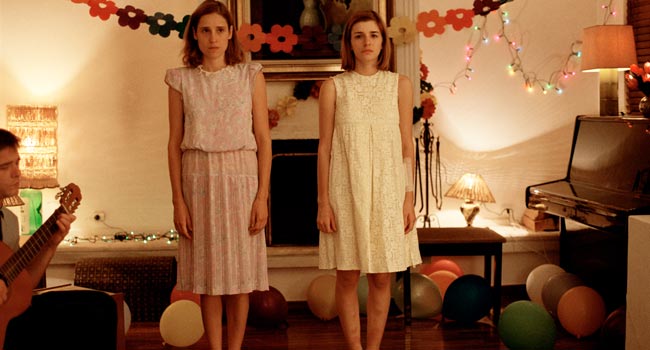
Dogtooth is nothing if not original. In 2009, the film was the winner of the Un Certain Regard category, a selection of film at Cannes that tend to be of the “edgier” fare, though surprisingly it did go on to earn a Best Foreign Language nomination at the Oscars. The film is about a brother and two sisters that are completely fenced in from the outside world by their over-protective parents. The parents instill fear into their children by telling them the cat they sometimes see in the backyard is a vicious creature that they should stay away from. Pairing well with the unique story is the brilliant camera work that carefully keeps everything in the center of the frame. This fixed camera technique means that you are only allowed to see what is inside the frame, detaining the viewer similar to how the high-wall fence around the house detains the children. Dogtooth is a wonderfully disturbing satire on censorship. [Dustin]
#9 – Taste of Cherry
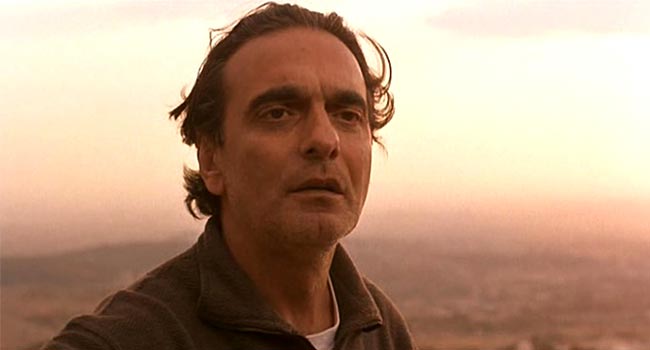
Abbas Kiarostami is one of the most unique and poetic directors in film today, and Taste of Cherry is as good an example of his vision as any. Mr. Badii, middle-aged man, scours Tehran looking for someone who will aid him in killing himself. He is willing to offer quite a sum of cash to any who will help, but to his surprise, no one is willing to carry that weight. Badii’s potential accomplices try desperately to talk him down from the ledge, but he’s a stubborn one. Winning the Palme d’Or at Cannes in 1997, Kiarostami’s life-affirming masterpiece is one of the great indie treasures of the ‘90s. [Bernard]
#8 – Apocalypse Now
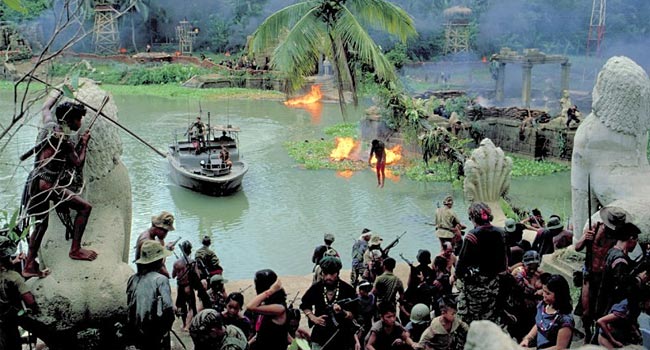
Francis Ford Coppola’s film is one of the best ever made about man’s decent into hell. Taking place during the Vietnam War, Captain Willard (Martin Sheen) is tasked with exterminating (with extreme prejudice) a Colonel (Marlon Brando) who has lost his mind. Traveling up the Nung River on a boat into Combodia, Willard is joined by a small group of soldiers who all seem to be at their breaking point. Coppola fills his film with exciting, visceral images that will haunt you long after the film finishes. Sure some of it is extreme, in one scene has an ox hacked to death with a machete in another Willard’s boat passes a slew of decapitated human heads on large sticks, but certainly you cannot deny how powerful the film is. Dennis Hopper, Robert “I love the smell of Napalm in the Morning” Duvall, Harrison Ford and Laurence Fishburne populate this frightening film. While the film is definitely hard to watch at times, it is one that is not to be missed. Coppola’s vision of the Vietnam War is the best that cinema has ever produced; unrelenting, disgusting, nightmarish, deplorable, fascinating all at the same time. [Blake]
#7 – The Piano
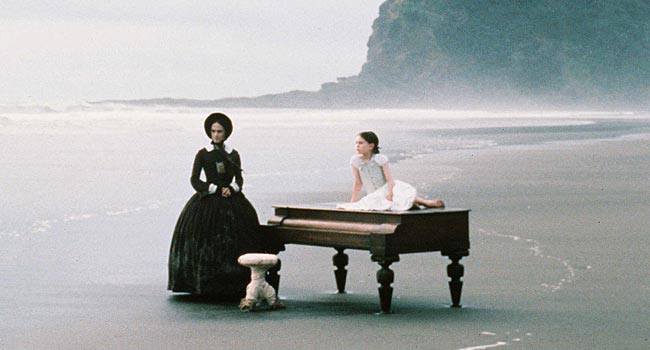
Told with a sweeping paintbrush of emotion, Jane Campion’s 1993 Palme d’Or winner, is a haunting film. Mute Ada arrives from Scotland on the shores of 19th century New Zealand to enter into an arranged marriage. With only her daughter Flora to interpret her sign language, Ada prefers to communicate by playing her piano. So when her husband-to-be decides the piano isn’t worth the trip through the swamps to their home, she’s understandably upset. Their neighbor Baines retrieves the piano and bargains with Ada to earn it back by teaching him to play; lessons that quickly turn into something more. Holly Hunter truly earned her Oscar that year, making each stroke of the piano keys more sincerely intense than any line uttered (for only her “mind’s voice” is heard in narration), and for fogging glasses with a sexually charged romance with a blue-tattooed Harvey Keitel. Anna Paquin made history as the second youngest actress to win an Oscar for her role as Flora, the contrarily verbose and imaginative daughter to silent Ada. Resonating with imagery, one almost feels damp as the characters traipse through New Zealand’s unsettled land. And accompanied by a flawless score written by Michael Nyman, a librettist who understands how to allow a piano to do most the speaking, The Piano is evocative and unforgettable. [Ananda]
#6 – Uncle Boonmee Who Can Recall His Past Lives
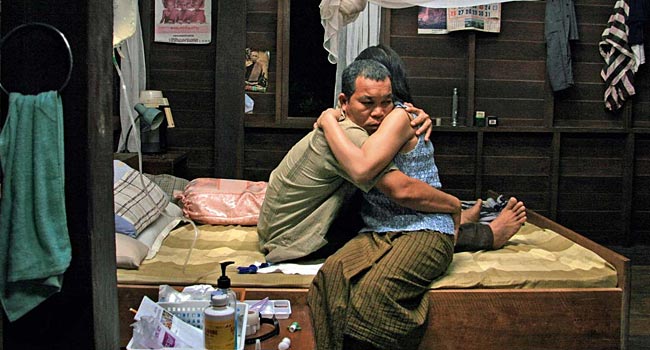
As he prepares to die from kidney failure, Uncle Boonmee goes to the countryside with his family to live out his final days. Ghosts, monkey creatures and princesses are only a few of the oddities that pop up throughout Apichatpong Weerasethakul’s masterpiece, a film about moving on to the afterlife that feels like it exists between our world and the next. Despite its bizarre content and free-flowing narrative, including a 15 minute detour involving sex with a catfish, the film walked away with the Palme D’Or in 2010. It was one of the few years at Cannes where the Palme was given to the most deserving film in competition. [CJ]
#5 – The Seventh Seal
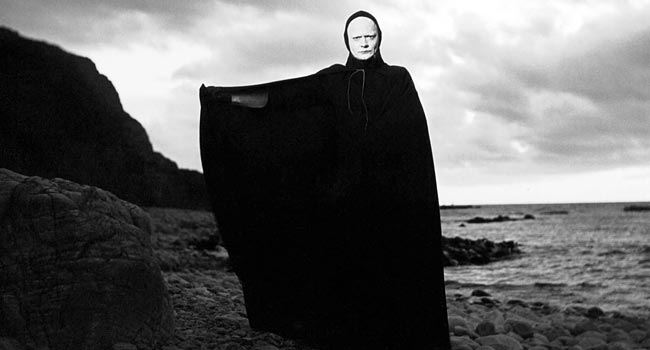
Still (for my money) the best example of cinema at its most lyrical and literary, Ingmar Bergman’s The Seventh Seal is one of cinema’s most essential works. When it won the Special Jury Prize at Cannes in 1957, it alerted the entire film community of the genius of Bergman and the silver-screen titan that is Max Von Sydow. Set in an exquisitely realized middle ages, a knight on the way home from the crusades engages in a high-stakes chess game with death himself (one of cinema’s most enduring images) as he treks a plague-ridden countryside with his partner, the squire. Bergman used The Seventh Seal, like many of his other films, as a way to visually articulate his inner-struggle with mortality and God’s muteness. Says the knight, “I want God to put out his hand, show his face, speak to me. I cry out to him in the dark, but there is no one there.” [Bernard]
#4 – The Tree of Life
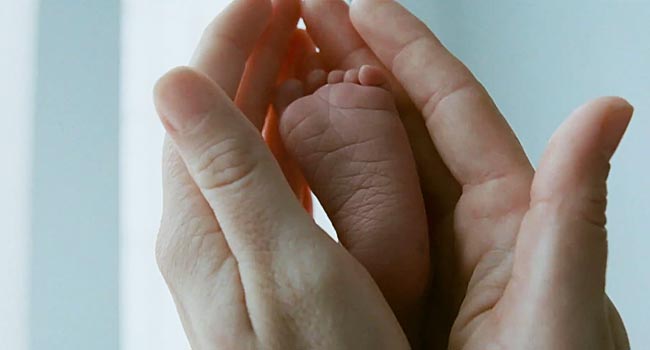
Terrence Malick’s The Tree Of Life took home the coveted Palme d’Or in 2011 for his visual masterpiece of a film. Despite winning over many critics and picking up Oscar nominations, the film had a difficult time winning over the general audience and has the box office numbers to prove it. But Malick is one of those directors who is in the rare position to not depend on commercial success, which allows him to make such daring and experimental films such as this. The Tree Of Life is a mesmerizing cinematic experience that contains some of the most visually stunning scenes you will ever see in film. It is too bad its theatrical run was cut short, this is a film that deserves to be seen on the big screen. [Dustin]
#3 – Taxi Driver
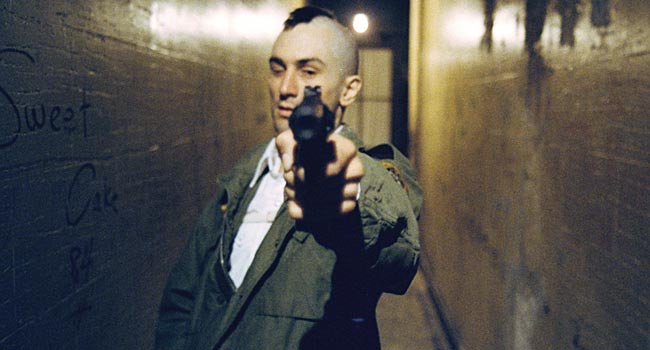
Taxi Driver was amid the first few films that kick started De Niro’s career, and one that won the Palme d’Or award in 1976. Argued to be one of the greatest films of all time by Roger Ebert, it holds great cultural and historical significance to American history in regards to the post-Vietnam era. De Niro’s character, Travis Bickle is a war veteran who received honourable discharge from the U.S Marines. He is an extremely lonely and depressive man whose chronic insomnia allows him to take a job as a taxi driver. Travis soon finds himself being overwhelmed and angered by the street crime and prostitution he is witnessing on a daily basis and turns this built up frustration into training his body and his mind into a man capable of doing anything. Taxi Driver is a great classic that has imprinted profoundly within film history and definitely worth a watch. [Amy]
#2 – Pulp Fiction
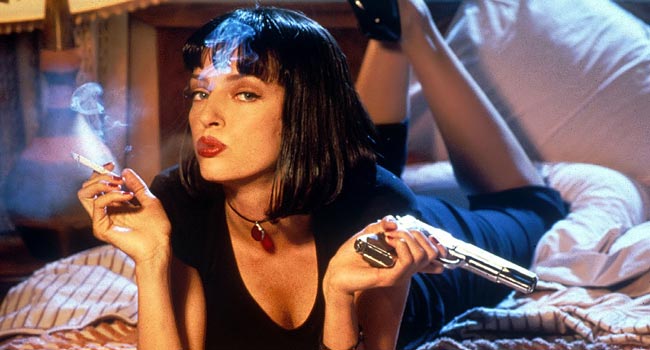
Resevoir Dogs was a hit for Quentin Tarantino in 1992, but it wasn’t utnil 2 years later when he premiered his highly influential game changing masterpiece Pulp Fiction to the world. The film shot Tarantino into the stratosphere of filmdom’s elite and to countless year-end awards. Pulp Fiction tells three tales of blood, mayhem and hilarity. Two hit men, their boss’ wife, the prize fighter they hunt and a special briefcase that is an enigma unto itself. Tarantino and screenwriting partner Roger Avery expertly weave these three stories from back to front to middle to the back again. Tarantino’s dialogue glides off the actor’s tongues like an ice cube in the heat. A career best performance from John Travolta leads the numerous supporting turns from Bruce Willis, Uma Thurman, Samuel L. Jackson, Eric Stolz, Frank Whaley, Harvey Keitel, Ving Rhames and Christopher Walken in a single scene stealing cameo. This is one of the most invigorating film going experiences that cinema has to offer; one that only becomes richer and richer the more it’s viewed. [Blake]
#1 – Oldboy
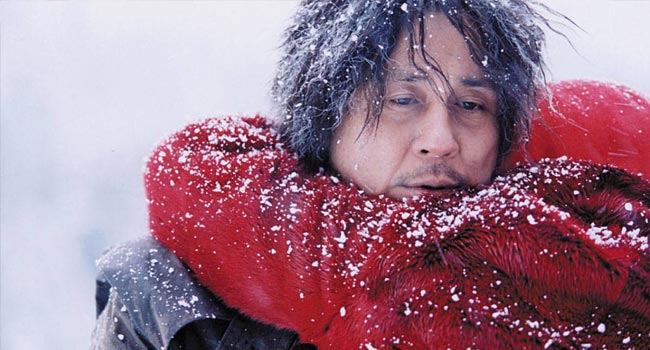
It is unbelievably difficult to summarize this film in just a few short sentences, seeing as the storyline is so complex and vastly different to anything you may be expecting. Oldboy focuses on the painfully playful torment and torture of Dae-su Oh who has been kidnapped and imprisoned for fifteen years without any known reason. His mission, once released, is to find his captor and confront him. As Western popular film audiences have only been introduced to Asian cinema through the horror genre, Oldboy is an excellent example of modern East Asian cinema. Oldboy was a phenomenal stylistic achievement and along with the soundtrack and intense original storyline makes it essential viewing to any film fan. [Amy]
